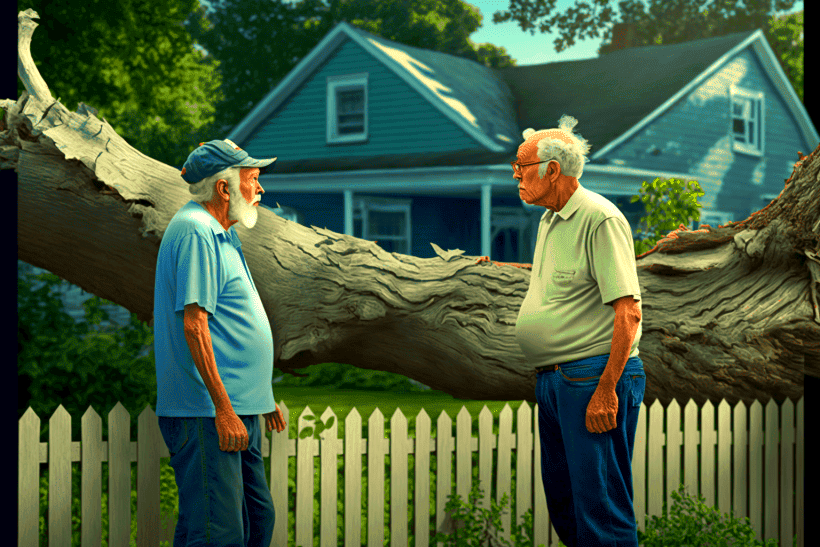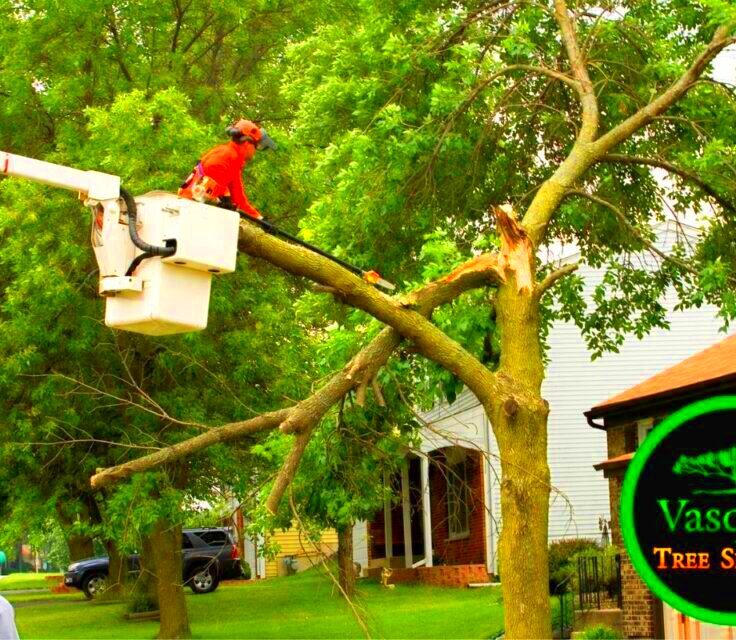Florida Tree Falling on Neighbor’s Property Law Explained
Florida’s tree laws are essential for maintaining harmony between neighbors. With its lush landscapes and diverse plant life, Florida has unique regulations regarding trees. Understanding these laws helps property owners know their rights and responsibilities. Whether it’s about a tree that has fallen or concerns about tree maintenance, knowing the legal framework is crucial. Let’s explore how these laws work and what you need to do if you find yourself in a situation involving a tree on your neighbor’s property.
Understanding Neighbor’s Rights and Responsibilities

When it comes to trees, both neighbors have rights and responsibilities. Here’s a breakdown:
- Right to Trim: Neighbors can trim branches that extend over their property line, as long as it does not harm the tree’s health.
- Duty to Maintain: Each property owner is responsible for maintaining their trees to prevent potential hazards, like falling branches.
- Communication: It’s essential to communicate with your neighbor regarding any tree concerns to avoid misunderstandings.
- Legal Action: If a tree causes damage, the affected neighbor may pursue legal action if the tree was not properly maintained.
Open communication often resolves disputes and helps maintain good neighborly relations.
Tree Ownership and Liability in Florida
Understanding who owns a tree can sometimes be confusing, especially if it’s close to a property line. Here’s what you need to know:
- Ownership: The tree belongs to the property owner where the trunk is located. If the trunk straddles the line, both neighbors share ownership.
- Liability: If a tree falls and causes damage, the owner is generally liable unless it can be proven that the tree was healthy and the fall was sudden.
- Negligence: If a neighbor fails to maintain a tree that is known to be hazardous, they may be held liable for damages.
Property owners should regularly inspect their trees and take necessary actions to avoid accidents. Documenting the tree’s condition can also be beneficial in case of disputes.
Common Scenarios of Tree Damage
Tree damage can happen in various situations, often leading to disputes between neighbors. Here are some common scenarios:
- Fallen Trees: Heavy winds, storms, or even natural decay can cause trees to fall. If a tree falls onto a neighbor’s property, it raises questions about liability.
- Overhanging Branches: Branches that hang over a property line can be a nuisance. They may block sunlight, drop leaves, or even damage structures.
- Roots Invading Property: Tree roots can cause damage to fences, driveways, or even the foundation of a home. This can lead to costly repairs.
- Tree Diseases: A diseased tree can pose a threat to neighboring trees and properties. If not addressed, it may lead to more significant issues.
Understanding these scenarios can help you navigate potential conflicts and know when to take action. Remember, communication is key to resolving disputes amicably.
How to Handle a Tree Falling Incident
When a tree falls, it can be stressful. Here’s how to handle the situation effectively:
- Ensure Safety: First, check for injuries. Ensure everyone is safe and call emergency services if necessary.
- Assess the Damage: Take photos of the fallen tree and any damage it caused. This documentation can be vital for insurance claims.
- Notify Your Neighbor: If the tree belongs to your neighbor, inform them about the incident. Open communication helps prevent misunderstandings.
- Contact Professionals: Hire a tree removal service to safely remove the tree and address any hazards. Ensure they are insured and experienced.
- Consult with Your Insurance: Reach out to your homeowner’s insurance to discuss coverage options for damage caused by the fallen tree.
Taking these steps can help manage the aftermath of a tree falling and maintain good relationships with your neighbors.
Insurance Claims and Coverage Options
Understanding your insurance coverage is essential when dealing with tree damage. Here’s what you need to know:
- Homeowner’s Insurance: Most policies cover damage caused by fallen trees, but the specifics can vary. Always check your policy for details.
- Coverage for Tree Removal: Your policy may cover the cost of removing a fallen tree, especially if it damages your home or another structure.
- Liability Coverage: If your tree causes damage to a neighbor’s property, your liability coverage may help cover their repair costs.
- Exclusions: Be aware of any exclusions in your policy. Some plans may not cover damage caused by neglect or poorly maintained trees.
Before filing a claim, gather all necessary documentation, including photos and any communications with neighbors. Contact your insurance agent to discuss the claim process and what to expect.
Preventative Measures for Property Owners
Taking proactive steps to maintain your trees can save you from potential disputes and damage. Here are some effective preventative measures for property owners:
- Regular Inspections: Check your trees frequently for signs of disease, damage, or decay. Look for cracks in the trunk or branches, or any unusual growths.
- Proper Pruning: Trim branches regularly to promote healthy growth and prevent overhanging limbs that could pose a risk to neighboring properties.
- Healthy Soil Practices: Ensure your trees have healthy soil by checking for proper drainage and nutrients. Healthy trees are less likely to fall.
- Consult Professionals: Hire an arborist for expert advice on tree care and maintenance. They can help you identify potential issues before they become serious problems.
- Communicate with Neighbors: If you have large trees near property lines, keep an open line of communication with your neighbors. Discuss any concerns before they escalate into disputes.
By taking these measures, you not only protect your property but also maintain good relationships with your neighbors, reducing the chances of legal issues in the future.
Frequently Asked Questions
Here are some common questions regarding tree laws in Florida:
- What should I do if a tree falls on my property? Ensure everyone’s safety first, then assess the damage and contact your insurance provider.
- Am I responsible for a tree that falls from my neighbor’s yard? Generally, the tree owner is liable unless negligence can be proven.
- Can I trim my neighbor’s tree branches? Yes, you can trim branches that overhang your property, but ensure you do not harm the tree.
- What if my tree causes damage to my neighbor’s property? You may be liable for damages if the tree was in poor condition and you failed to maintain it.
- How can I prevent tree-related disputes? Regularly communicate with your neighbors and maintain your trees to avoid misunderstandings.
These FAQs can guide you through common concerns and help clarify your rights and responsibilities as a property owner.
Conclusion on Florida Tree Falling Laws
Understanding Florida tree laws is vital for property owners to avoid disputes and potential legal issues. By being aware of your rights and responsibilities, you can better manage your trees and maintain good relationships with your neighbors. Remember, regular maintenance and open communication can significantly reduce the chances of a tree-related incident. Whether it’s about trimming branches or handling a fallen tree, knowing the legal framework helps you navigate these situations more effectively. Stay proactive and informed to keep your property and your community safe!


